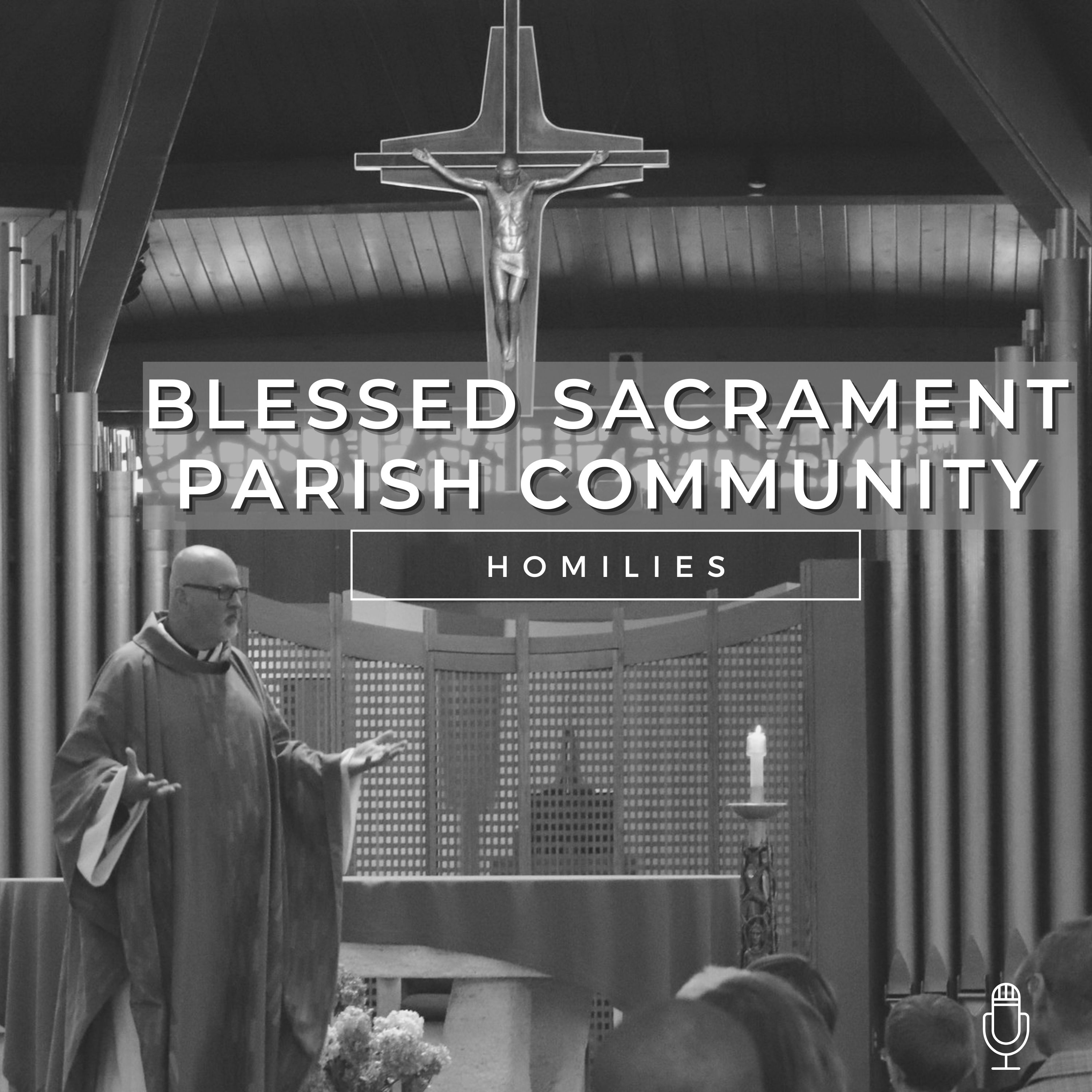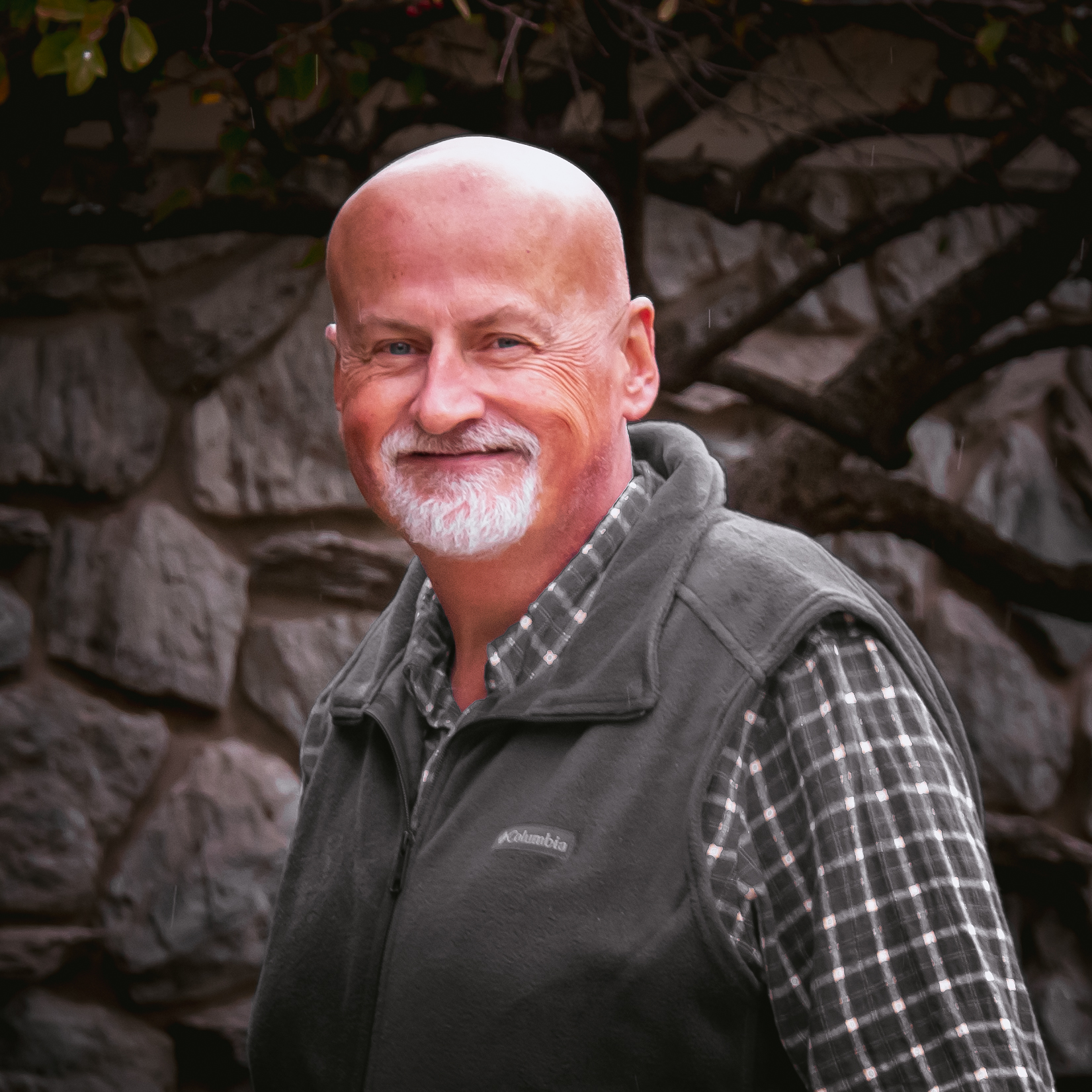Episode Transcript
[00:00:12] Speaker A: Welcome to the Blessed Sacrament Homilies podcast, where our mission is to help everyone recognize and experience the presence of God. We hope you are nourished and encouraged by the Word. Thank you for joining us.
[00:00:25] Speaker B: The Lord be with you and with your spirit. A reading from the Holy Gospel according to John. Glory to you, O Lord. On the evening of the first day of the week, when the doors were locked where the disciples were for fear of the Jews, Jesus came and stood in their midst and said to them, peace be with you.
When he said this, he showed them his hands and his sign.
The disciples rejoiced when they saw the Lord.
Jesus said to them again, peace be with you. As the Father has sent me, so I send you.
And when he had said this, he breathed on them and said to them, receive the Holy Spirit. Whose sins you forgive are forgiven, them whose sins you retain are retained.
Thomas, called Didymus, one of the 12, was not with them when Jesus came.
So the other disciples said to him, we have seen the Lord.
But he said to them, unless I see the mark of the nails in his hands and put my finger into the nail marks and put my hand into his side, I will not believe.
Now a week later, his disciples were again inside and Thomas was with them.
Jesus came, although the doors were locked, and stood in their midst and said, peace be with you.
Then he said to Thomas, put your finger in here and see my hands. Bring your hand and put it into my side.
Do not be unbelieving, but believe.
Thomas answered and said to him, my Lord and my God.
Jesus said to him, have you come to believe because you have seen me?
Blessed are those who have not seen and have believed.
Now, Jesus did many other signs in the presence of of his disciples that are not written in this book. But these are written that you may come to believe that Jesus is the Christ, the Son of God, and that through this belief you may have life in his name. The Gospel of the Lord.
Praise to you, lord Jesus Christ.
St. Thomas the Apostle is oftentimes referred to as Doubting Thomas.
And I don't think that is particularly fair to him because doubting in most areas tends to have a negative connotation, as if his faith were weak.
And actually that's farthest from the case.
I think a better name for Thomas just might be Honest Thomas.
And in all matters of faith, honesty is key.
If in our prayer life all we do is blow sweet nothings at God when we are upset or angry, our relationship with God is dishonest.
If we love someone and they Love us. At the heart of the relationship has to be honesty.
And Thomas was blatantly honest.
But you've heard me say this before, but it's worth repeating on this Sunday.
The opposite of doubt is not faith.
It's certainty.
And what certainty does for us is it makes us independent. We don't need God's help. We've got it figured out. We don't need God strengthening our faith.
We're sure.
And I had someone walk out of church last night and actually say to me, never trust anybody that is certain.
And I think that's a pretty good rule to follow, because what certainty leads to is ideologies. It leads to isms.
And if you look at any ism, it's probably not good.
It puts us in an area where we are stuck in a very narrow view of the world and of our lives and most importantly, of our relationship with God. And when our view is narrow, we shut God out from entering in.
I'm guessing most, if not all of you at one time or another have had doubts in your faith. And I'm gonna argue those are very good moments because it gives God's grace a chance to enter in and to offer us hope.
To be perfectly honest, I have had probably thousands of doubts over the years, and those doubts have virtually always led to God's grace strengthening the faith that I sometimes struggle with and making it more real and more profound.
But the other thing that can happen is, I think as we grow older and as we mature, we don't simply just swallow everything we've been told.
We use our reason and our intelligence. We use our reflection to question things. And questioning is always good as well, because it allows us to have a relationship with God where God can teach and allow us to grow.
If you have doubts in your faith, if you struggle sometimes with them, talk to Jesus about him. Allow him to strengthen you. But you might also want to talk to St. Thomas, who truly learned that when his faith was shaky, Jesus gave him exactly what he needed, and he'll do the same for us.


